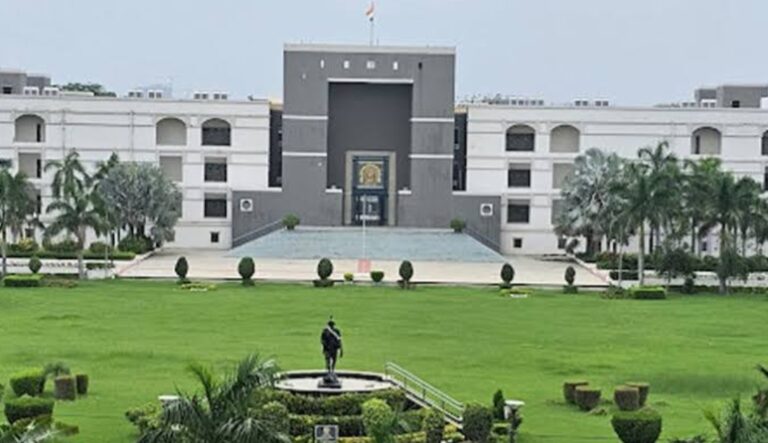In a major relief-oriented move for taxpayers and professionals, the Gujarat High Court, in its order dated 26 September 2025 in the case of Income Tax Bar Association & Another vs. Union of India & Others (R/Special Civil Application No. 13533 of 2025), issued a crucial direction to the Central Board of Direct Taxes (CBDT) regarding the deadlines for filing tax audit reports under Section 44AB and Income Tax Returns (ITR) under Section 139(1).
The Court emphasized that there must be a mandatory one-month gap between these two compliance dates, as envisaged in Explanation (ii) to Section 44AB of the Income Tax Act, 1961. This decision came after CBDT’s recent circular extended the tax audit report deadline but not the corresponding ITR filing date — creating compliance pressure and confusion among taxpayers and professionals.
The Gujarat High Court’s order thus reaffirms the statutory linkage and procedural fairness between the two deadlines, reinforcing that any extension of the audit due date must automatically result in a proportional extension of the ITR filing due date.
Background & Factual Context
- Statutory framework
- Under Section 44AB of the Income-tax Act, a taxpayer (business or professional) whose turnover/gross receipts exceed prescribed limits must submit a tax audit report by a “specified date.”
- Under Section 139(1), the taxpayer must file the Income Tax Return (ITR) by a due date (for audit cases, normally October 31) for that assessment year.
- Explanation (ii) to Section 44AB links the “specified date” for furnishing the audit report to “one month before the due date for furnishing the return under Section 139(1).”
- Recent extension for audit report
- In 2025, the CBDT issued a circular (14/2025 dated 25 September 2025) extending the “specified date” for filing tax audit reports for FY 2024-25 (AY 2025-26) from September 30, 2025 to October 31, 2025.
- However, no corresponding extension was issued simultaneously for the ITR filing due date under Section 139(1) (i.e., it remained as October 31, 2025 for audit cases).
- Petitions & litigation in Gujarat HC
- Several tax practitioners’ associations (such as the Income Tax Bar Association, All India Federation of Tax Practitioners, Chartered Accountants Association, Surat) filed writ petitions before the Gujarat High Court, challenging the mismatch in deadlines and seeking extension of ITR deadline.
- The Gujarat High Court bench (Justice Bhargav Karia and Justice Pranav Trivedi) has asked CBDT to explain why the ITR due date was not also extended when the audit due date was extended, given the statutory linkage under Section 44AB.
- The court referred to an earlier Gujarat HC decision (All Gujarat Federation of Tax Consultants v. CBDT, SCA 12656 of 2014, decided 22 September 2014) in which it was held that the Board cannot extend only the audit-report deadline without also extending the return filing deadline, since the two are “inseparably linked” by Explanation (ii) to Section 44AB.
Legal Issues & Court’s Reasoning
- Statutory linkage & legislative intent
- The petitioners argue (and the court seems to accept) that Explanation (ii) to Section 44AB creates a statutory connection between the audit report date and the return filing date. Extending one without the other would distort the scheme of the statute.
- The court observed that CBDT’s power under Section 119 (general power to relax certain provisions) does not permit relaxing Section 44AB in isolation. Thus, the Board cannot use Section 119 to extend only the audit deadline without also addressing the corresponding return due date.
- Equity, fairness & practical hardship
- The court noted the unfairness of bringing audit-report and ITR filing deadlines to the same day, giving no “breathing space” for taxpayers or their professionals to prepare the return after audit.
- It also criticized the practice of last-minute circulars/extensions by CBDT, saying that it causes uncertainty and hardship to the taxpayer community.
- Direction to maintain one-month gap
- Based on these principles, the court directed that the mandatory one-month gap between audit report deadline and ITR filing due date (as contemplated in Explanation (ii) to Section 44AB) must be respected. In other words, once CBDT extends the audit deadline, it must also extend the ITR due date so as to preserve that one-month interval.
- The court gave CBDT an opportunity to explain why it did not extend the return-filing date concurrently.
Status & Next Steps
- A further hearing in the Gujarat HC is scheduled (or was scheduled) (for example, October 6) for CBDT to respond.
- If the CBDT fails to satisfactorily explain or comply, the court may pass final orders mandating an extension of the ITR due date for audit cases (likely to November 30).
- Meanwhile, in other jurisdictions, High Courts (e.g. Rajasthan, Karnataka) have already directed extension of audit-report deadlines (to October 31) in response to similar petitions.
Implications & Points to Watch
- For taxpayers & professionals
- If Gujarat HC’s direction holds, taxpayers whose accounts require audit may get ITR filing relief (i.e. moved to November 30) once CBDT issues notification.
- Professionals will gain additional buffer between completing audit and filing ITR.
- However, until the CBDT formally notifies the extension, the existing due date (October 31, 2025) may remain operative—but with risk of litigation or show-cause notices.
- For CBDT / policy makers
- The judgment pressures CBDT to adopt a more consistent and legally sound approach to extensions—ensuring that extensions to audit deadlines are matched with corresponding return-filing extensions.
- It may curtail arbitrary or last-minute circulars that stretch or compress compliance timelines.
-
Risk & uncertainty
- If CBDT resists or delays, divergent deadlines may continue to create confusion across states.
-
Tax authorities may issue notices or take adverse positions in the interim period (before formal rule change), leading to disputes.
